 Your new post is loading...
 Your new post is loading...
Late last week I flew United from San Francisco to London. As we got on the plane one of the other passengers gave a box of chocolates to the flight staff as an act of kindness and support for the awful week they’ve had. Nearly 300 stories have been published by the leading news orgs in the US and UK about the incident. Unsurprisingly, our analysis shows sentiment of the coverage is almost exclusively negative. Those stories have earned nearly 1 million shares on Facebook in aggregate. That’s a lot of unwanted exposure for the company. It surpassed United’s trouble with leggings from the previous week about four times over....
The nonprofit Online Trust Alliance (OTA) on Wednesday conducted a study that found 71% of native ads on top media sites fail to offer adequate labeling, transparency, and complete consumer disclosure.
This is a blow to the native ad/branded content business and should be a wake-up call for publishers and content studios.
The study, an analysis of native ads on the top 100 news websites, found that 71% earned failing scores for disclosures, delineation, and discoverability. The bottom line: The sites didn’t offer consumers the ability to easily discern pure editorial from ads.
As most readers of this column know, native advertising refers to Web site content that’s funded and produced outside the publisher’s editorial review or influence, yet is designed to appear similar to editorial on that site. As the OTA mentions, “this illustrates the tension -- paid for and controlled separately, but presented in a way to appear as editorial. The potential for audience confusion or misinterpretation is obvious, and the rapid rise in the deployment of native has already prompted concerns from advocates, media and regulators.”...
“While the industry looks at native advertising as the holy grail to drive new revenues, they are failing to address the long-term issue. With 71% of native ads failing to pass the consumer transparency acid test, this report should be a wake-up call to the industry. Inaction is not an option. Conversely, providing these concrete examples and recommendations helps advertisers, networks and publishers in moving forward,” Craig Spiezle, executive director at the Online Trust Alliance, told Native Insider via email.
Edelman is usually tapped with helping brands avoid or disentangle themselves from public backlash, but the global PR firm instead found itself in the hot seat this week. At issue was a blog post from media relations strategy evp Lisa Kovitz, who said the suicide of comedian Robin Williams created a PR opportunity for groups advocating for better treatment of mental illness. "As we mourn the loss of Robin Williams to depression, we must recognize it as an opportunity to engage in a national conversation," she wrote. "His death yesterday created a carpe diem moment for mental health professionals and those people who have suffered with depression and want to make a point about the condition and the system that treats it." While she certainly has a point about such a high-profile tragedy bringing mental health and depression into the spotlight, quite a few readers found the post to be in poor taste....
It's the golden rule and the core of all communications etiquette: If you can't say something nice, don't say anything. On Tuesday, Kelly Blazek, who runs the Cleveland Job Bank, learned that lesson the hard way when her email smackdown of a young job seeker named Diana Mekota, who contacted her through LinkedIn, went viral.
"Love the sense of entitlement in your generation. And therefore I enjoy denying your invite," read Blazek's poison pen letter, in part. "You're welcome for your humility lesson of the year. Don't ever reach out to senior practitioners again and assume their carefully curated list of connections is available to you, just because you want to build your network."
Mekota posted the complete email on Reddit, Imgur, and Facebook, along with these comments: "Guess us twenty somethings should bow down to senior professional because clearly we have nothing to offer," and "Let's call this lady out." From there, it was like a torch thrown into a desert of parched tumbleweeds...
...What happens to those companies that make mistakes on a much greater scale and cost their company millions in clout or (gulp) dollars? They go down in history as the biggest marketing mistakes of our time. It's hard to move on when you're being cited as the example of what not to do, huh? We looked into the biggest mistakes from many popular brands -- but glossed over any smaller companies because we don't want to hurt the little guy ;-) Keep reading for a little entertainment, and some reminders of what you should never do to ensure you don't repeat these mistakes yourself....
|
But to little old me, a sincere apology goes a long way. When I sense genuine remorse, it means a lot to me -- perhaps because it's so rare, at least in my experience. Combined with my nerdy affection for all things marketing, that sentiment applies to brand apologies, too. It's not so much that I think, "Wow, that means a lot to me," but more like, "Wow, that company really nailed saying, 'Sorry.'" So, who's done it best? We rounded up some of our favorite brand apologies to inspire you next time you make a mistake -- and need to admit your wrongdoing....
Every business must serve a social purpose”. These are not the words of a social campaigner or a politician; they are the words of a banker, Ashok Vaswani, the CEO of Retail and Business Banking at Barclays, one of the world’s largest banks. Barclays has been involved in at least one major trading scandal and holds the dubious honour of the most fined bank in Britain. There will be some people who will treat his words with understandable cynicism but that would be to miss the point.
The point is not whether the words are sincere or not – it is that they should have been said at all. Banks are concerned with the control of money, why should they concern themselves with any purpose beyond that? The reason is that society is demanding they do. When banks first started they fulfilled a social need in the community, to enable ordinary people to fund their ambitions. Over the years banks forgot that purpose and focused most of their efforts on funding their own ambitions through obscene profits, often at the consumer’s expense. The bubble burst in spectacular fashion with the downfall of Lehman Brothers in the US and RBS in the UK.
It isn’t just the banks that have lost their way. Now it’s critical for any business to demonstrate it has a purpose before, and beyond profit; that it seeks to improve the lives of its customers as a primary goal. Failure to have such a purpose, to be clear about it and to ensure it directs everything you do, will lose customers, employees and ultimately business value....
The FTC announced on Thursday that it has caught ADT paying bloggers for endorsements (on blogs as well as national TV/radio) and not disclosing it.
Folks, the rules and the law on social media ethics are clear, as I’ve been sharing for years.More here.
In addition to ending the program, ADT will now be required to get a signed confirmation that a blogger has reviewed and understands their disclosure requirements — from every blogger they work with, for the next 20 years.
How awesome of a punishment is that?
Domino's and Bank of America show that having humans handling social media doesn't mean they'll act human.
Last week, Domino’s stepped in it on Facebook. A customer took to the brand’s Facebook page to compliment the chain, which then responded with a rote “Sorry for your bad experience” response. Digiday, along with others, covered the snafu, which appeared to point out the perils of relying on automated responses in social media.
And yet the error was actually a mistake made by a human, according to Domino’s. In much the same way as Bank of America screwed up last month by having a social media team sounding a lot like robots, a Domino’s employee mistook the compliment for a complaint. The employee then, it would appear, gave the default response for social media complaints. Domino’s, to its credit, tried to regain its footing by taking it in stride. The rub with brands in social media is that they’ll need humans, who are prone to make mistakes....
Public relations encompasses a multitude of skills: audience analysis, persuasive communication, business savvy. There are those who do all of these things poorly. These are the PR Dummies. The dumbest of the dumb, every week. How do acquisitions for companies worth hundreds of millions of dollars get done? Generally not through unsolicited emails to the "tips" line of one of that company's media properties. Although you never know....
|



 Your new post is loading...
Your new post is loading...

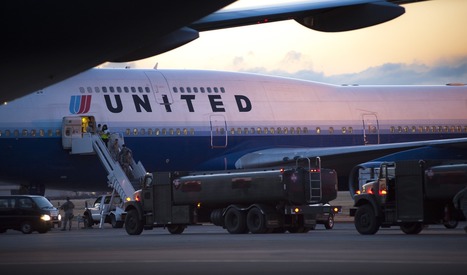

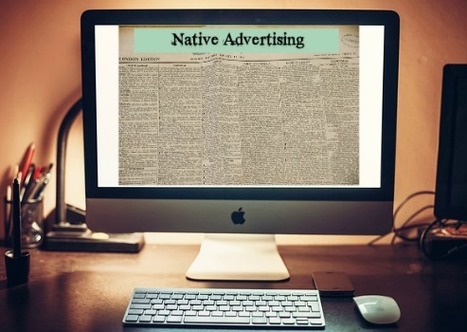
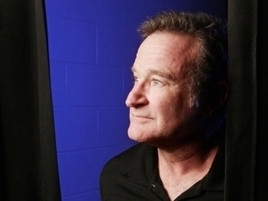

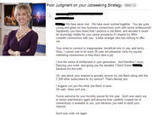


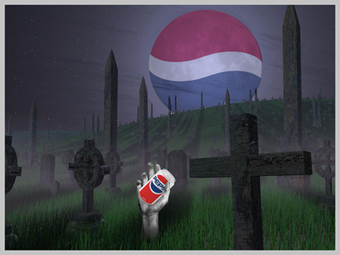

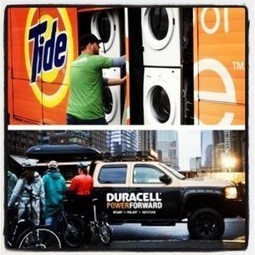








Not surprisingly, United Airlines took a massive social media and reputation hit, not to mention the impact on their share value.